News
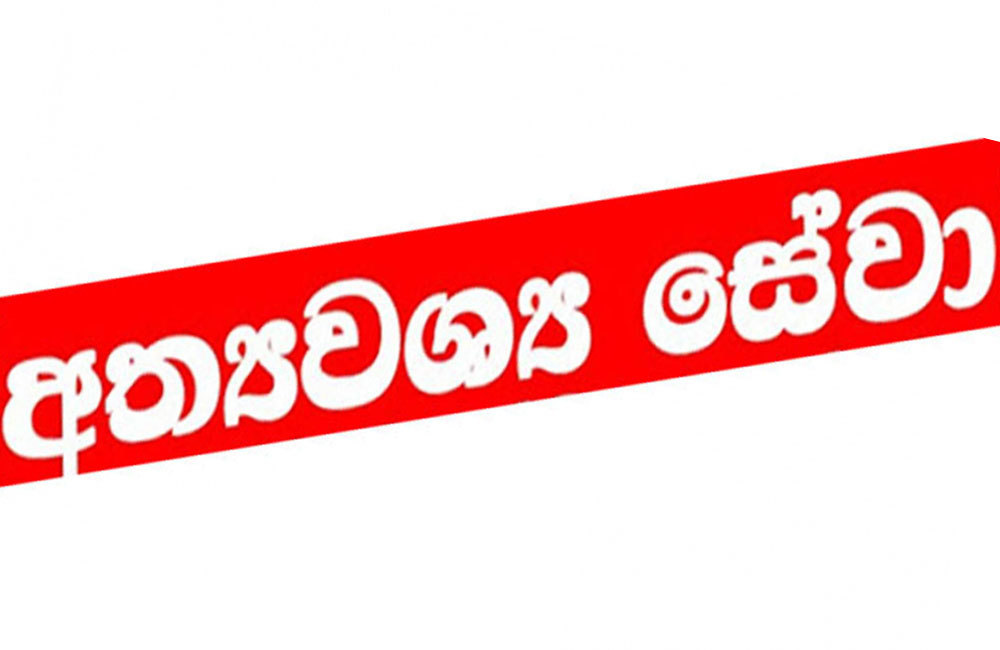
Gazette issued declaring several institutions as essential services
A special gazette notification has been issued declaring several institutions including ports, fuel, postal transport and Government banks as essential services.
The gazette, which was issued by the Secretary to the President, has been issued considering the possibility of any hindrances or disruptions in the provision of such services and as well as taking into account the facts mentioned in the guidelines issued by the Director General of Health Services on COVID-19 prevention.
Accordingly, Public Corporations, Government Departments, Local Authorities, Co-operative Societies or State Banks have been declared as essential services.
Essential services also include services related to the Ports Authority and all services related to fuel disposal, transportation, landing, all fuel supply and distribution including petroleum products and liquefied petroleum products, rail freight and public transport services provided by the Transport Board.
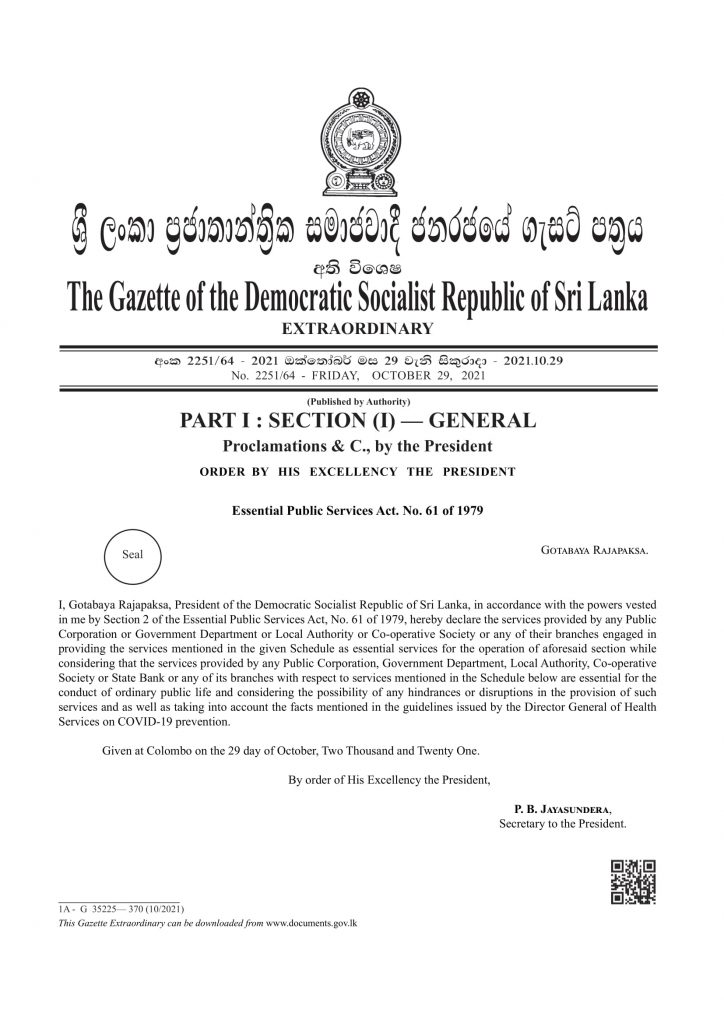

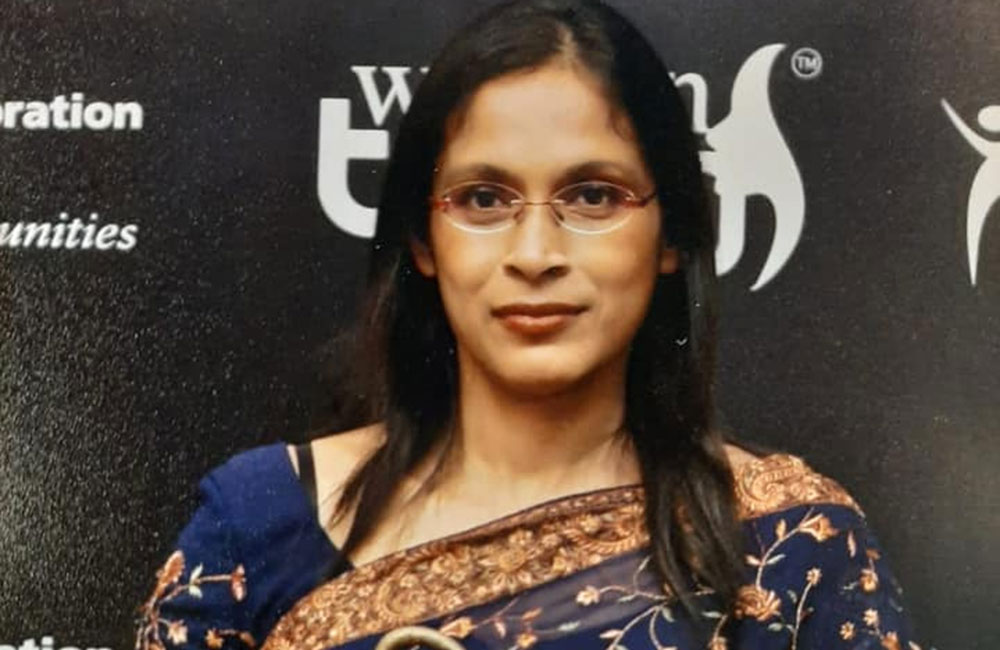
WHO selects Neelika Malavige to its COVID-19 advisory committee
The World Health Organization has selected Prof. Neelika Malavige, head of the Immunology and Molecular Medicine Department at the Sri Jayewardenepura University, to be a member of its technical advisory committee on COVID-19.
This committee advises on scientific, technical and strategic matters related to the COVID-19 Technology Access Pool.
It consists of 10 renowned experts with a diverse range of knowledge and expertise as clinicians and researchers. Just recently, Prof. Neelika Malavige was included in a list of the world’s best scientists compiled by the Stanford Universit
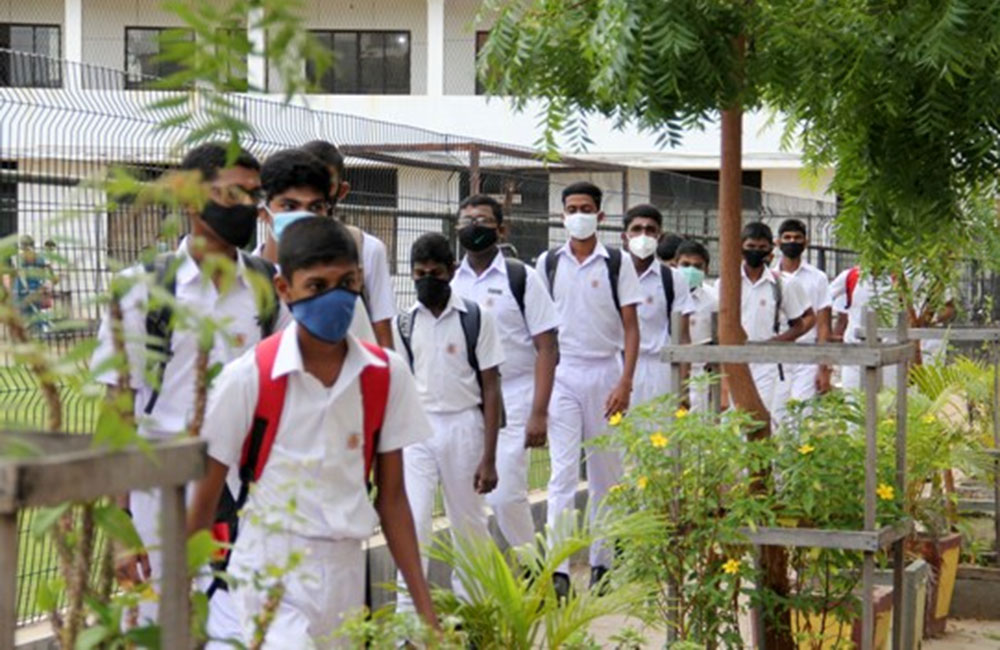
Schools to re-open for O/L & A/L students from 8th November
All school in Sri Lanka will re-open for Grade 10, 11, 12 and 13 from 8th November, announced the Education Ministry on Saturday (30).
Earlier, the Health Ministry also granted permission to re-commence tuition classes for O/L & A/L students from the 16th of November with 50% capacity.
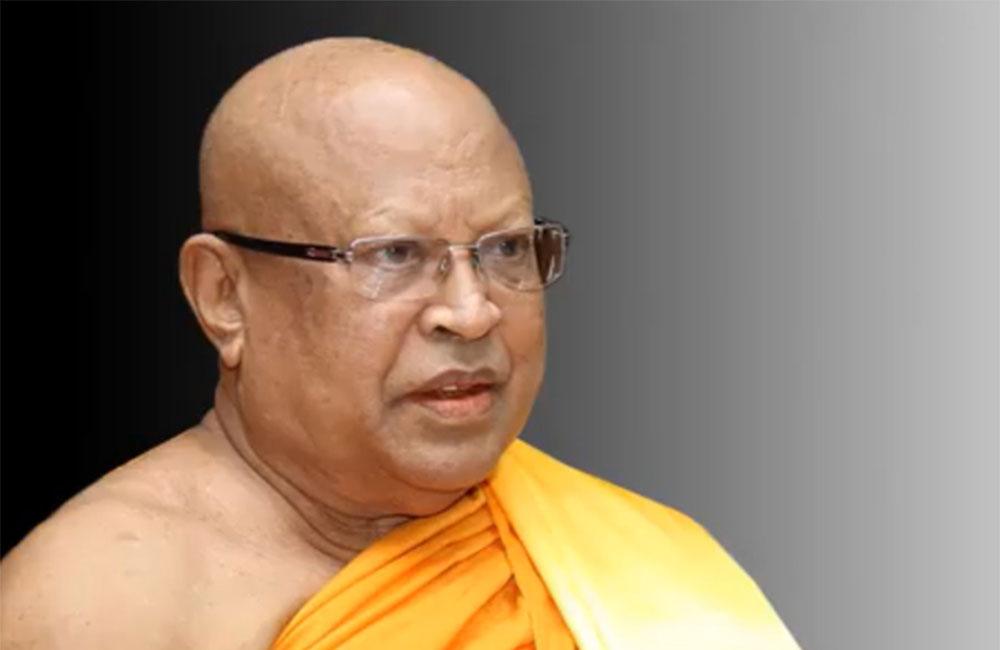
Most Ven. Welamitiyawe Kusala Dhamma Thero passes away
Chancellor of the University of Kelaniya, Aggamahapandit Dr. Most Ven. Welamitiyawe Dharmakirthi Sri Kusala Dhamma Thero has passed away.
The much venerated Thero was aged 84 at the time of his demise.
He passed away last night (October 27) while receiving treatment at a private hospital in Colombo.
Tripitaka Vagishwaracharya Ven. Kusala Dhamma Thero, who served as the head of the Vidyalankara Pirivena in Peliyagoda, devoted his whole life in robes to uplift Sri Lanka’s Buddha Sasana.
The Thero was also the Chief Judicial Prelate for the two Regions of Colombo and Chilaw.
The arrangements of final rites of Ven. Kusal Dhamma Thero will be announced later today, a spokesperson of Vidyalankara Pirivena said.

COVID fatalities in Sri Lanka climbs to 13,706
The Director General of Health Services has confirmed another 10 coronavirus related deaths for October 28, increasing the country’s death toll due to the virus to 13,706.
According to the figures released by the Govt. Information Department, the deaths reported today include 07 males and 03 females.
Five of the deceased are between the ages 30-59 and the remaining five are aged 60 and above.
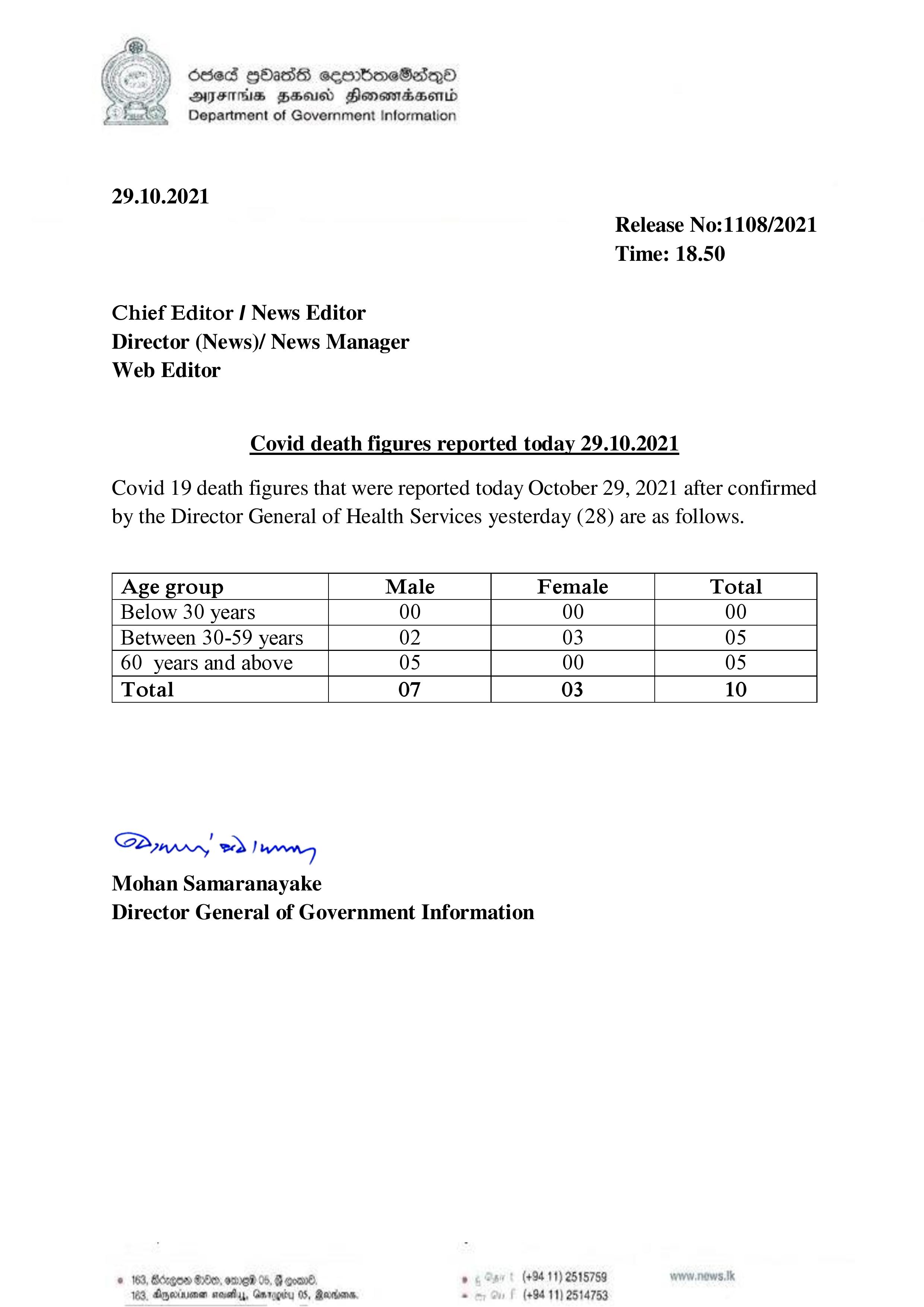

COVID deaths in Sri Lanka climb to 13,674
The total number of people, who died of COVID-19 infection in Sri Lanka, moved up as 20 more fatalities were confirmed by the Director-General of Health Services on Tuesday (October 26).
The new development has pushed the official death toll from the virus outbreak in the country to 13,674.
The latest victims include 11 males and 09 females, the Department of Government Information said.
According to official data, 08 deaths were reported among elderly people aged above 60 years. In addition, 12 people aged between 30-59 years have also fallen victim to the virus infection.
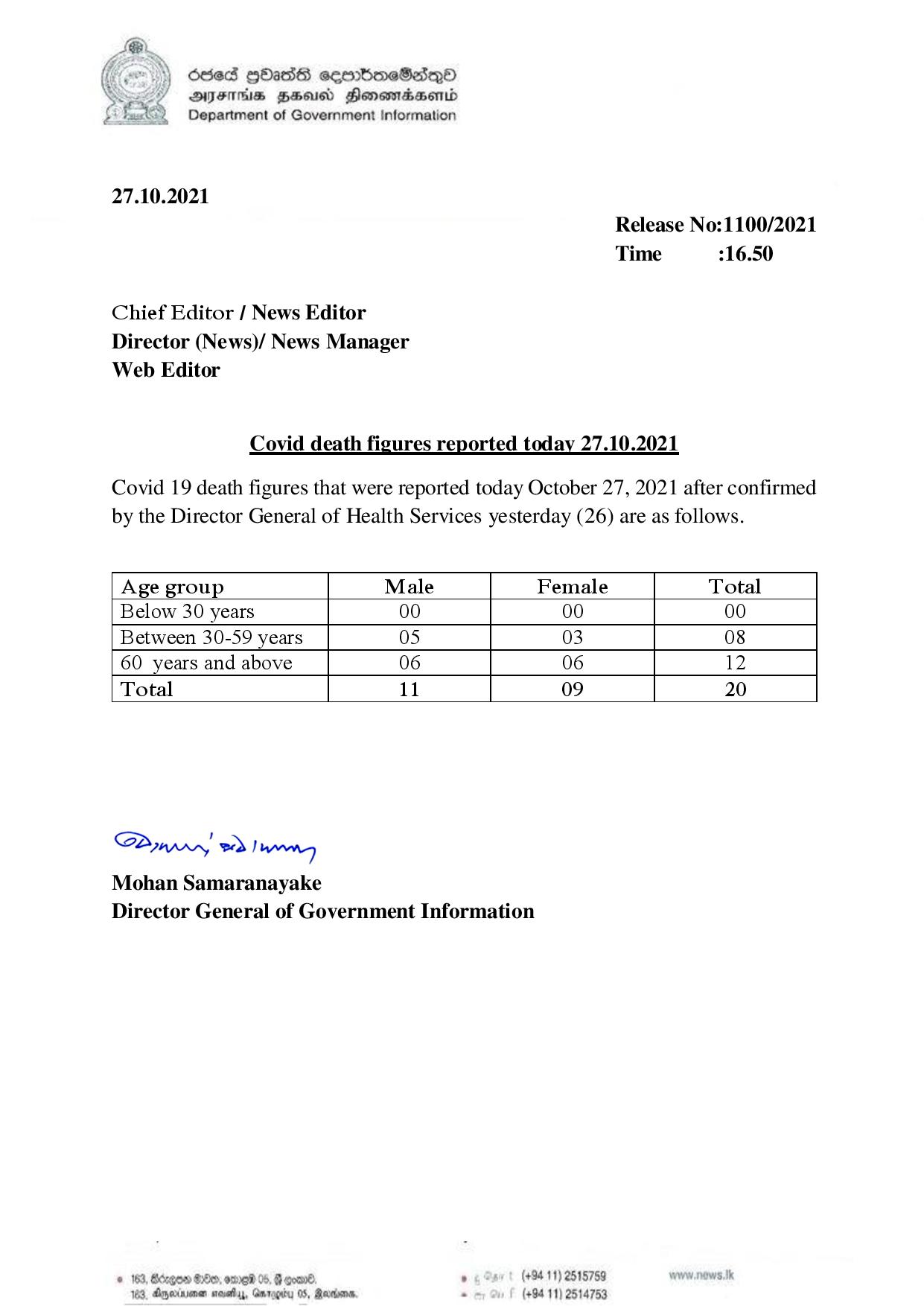
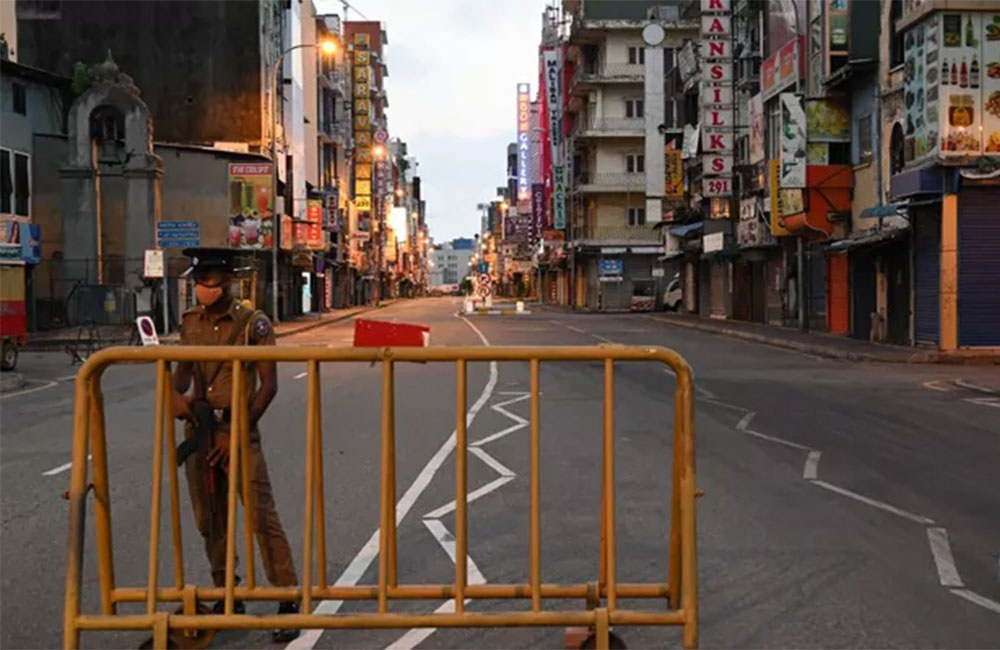
Inter-province travel restrictions to be lifted on 31 Oct.
The inter-province travel restrictions presently in force will be lifted at 4.00 am on 31 October, said the President’s Media Division today (29).
The decision was taken at a meeting of the COVID-19 Prevention Committee, chaired by President Gotabaya Rajapaksa.
Measures to reopen schools for GCE ordinary and advanced level students also came under discussion.
The possibility of making it mandatory to possess the vaccination card when visiting public places was discussed as well.
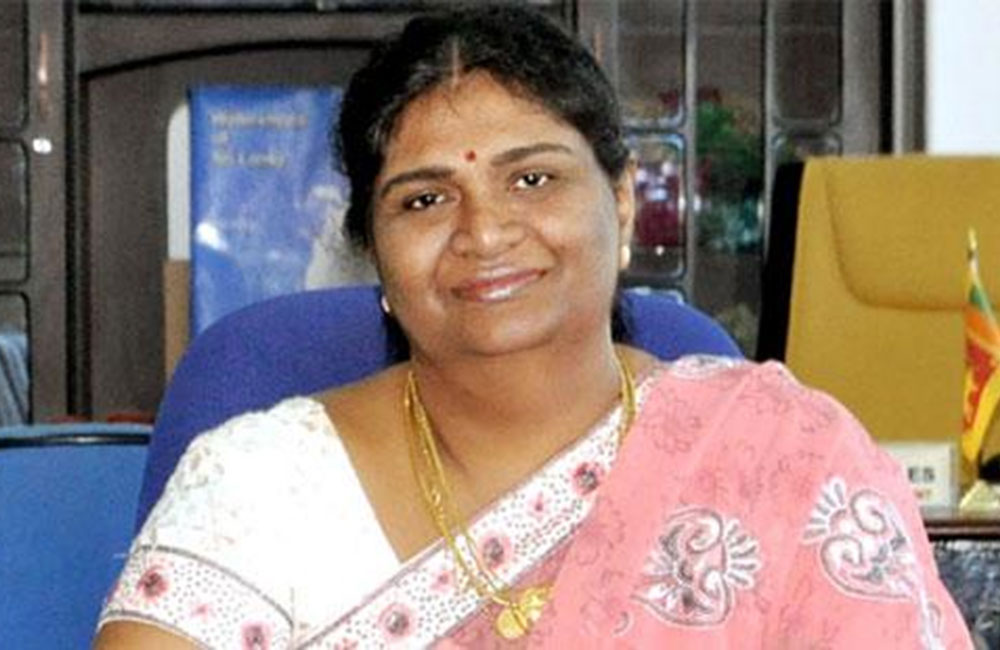
P.S.M. Charles appointed as member of Election Commission
Former Governor of the Northern Province P.S.M. Charles has been appointed as a member of the Election Commission. The motion moved by President Rajapaksa to appoint Mrs. Charles has been approved by the Parliament Committee.
Jeevan Thyagarajah, who served as a member of the Election Commission, resigned from his membership as he was nominated for the post of the Governor of the Northern Province. Upon Thyagarajah's resignation, Charles filled the vacancy.
Mrs. Charles previously served as the Secretary to the Ministry of Health and Indigenous Medicine as well as the Director General of Customs. Before the two posts, she also served as the Jaffna District Secretary.

China blacklists People's Bank
The Economic and Commercial Office of the Chinese Embassy in Sri Lanka has decided to blacklist the People's Bank of Sri Lanka.
The office said that People's Bank had recently failed to make the payment according to the Letter of Credit and the contracts between two parties, which had caused huge losses to Chinese companies in international trade.
Accordingly, the People's Bank has been included in the blacklist and Chinese companies have been instructed not to accept letters of credit issued by the People's Bank in trade with Sri Lanka.
People's Bank is one of the two major banks that issue letters of credit for imports. The inclusion of the bank in the blacklist will have a severe impact not only on imports from China but also on imports from other countries.
Suppliers in many countries, including India, are refusing to supply goods to Sri Lanka on letters of credit already, and this situation will continue to worsen in the future.
The news published by the Economic and Commercial Office of the Chinese Embassy

COVID fatalities in Sri Lanka increases to 13,654
The total number of people, who died of COVID-19 infection in Sri Lanka, moved up as 14 more fatalities were confirmed by the Director-General of Health Services on Monday (October 26).
The new development has pushed the official death toll from the virus outbreak in the country to 13,654.
The latest victims include 09 males and 05 females, the Department of Government Information said.
According to official data, 11 deaths were reported among elderly people aged above 60 years. In addition, 02 people aged between 30-59 years and one male below the age of 30 have also succumbed to the virus infection.
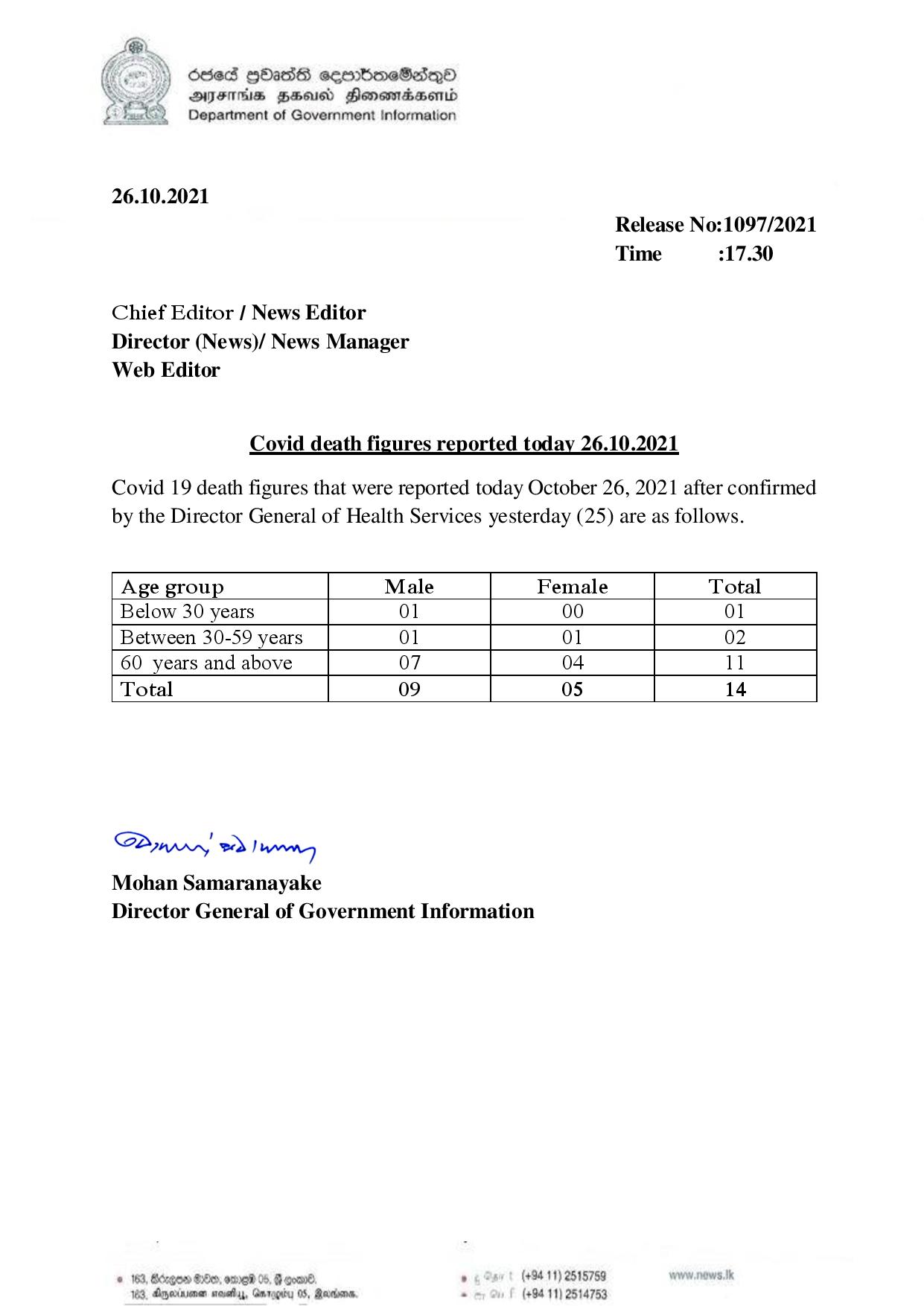

COVID fatalities in Sri Lanka climbs to 13,696
The Director General of Health Services has confirmed another 22 coronavirus related deaths for October 27, increasing the country’s death toll due to the virus to 13,696.
According to the figures released by the Govt. Information Department, the deaths reported today includes 09 males and 13 females while one of the victims is a youth below the age of 30.
Six of the deceased are between the ages 30-59 and the remaining fifteen and aged 60 and above.
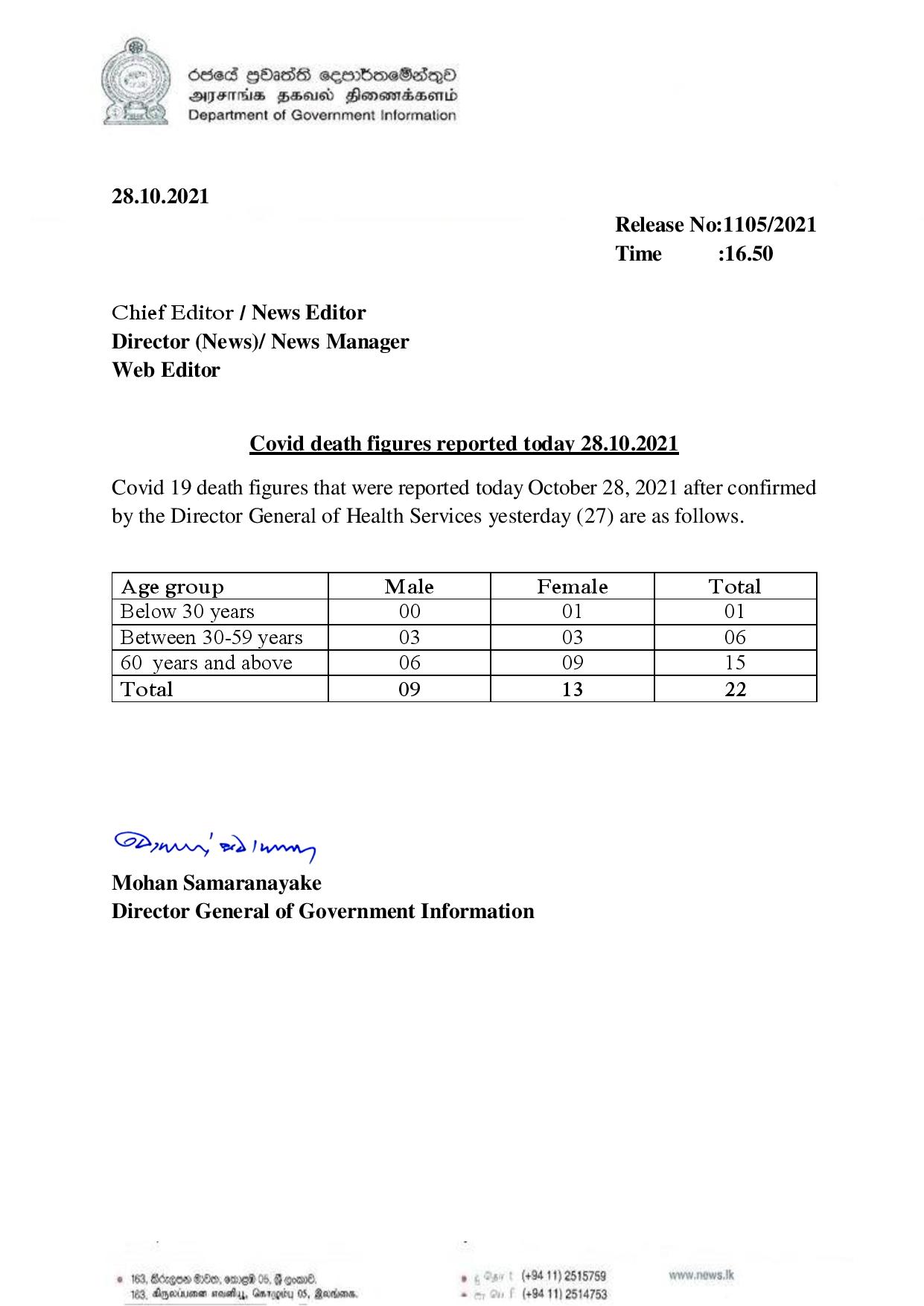
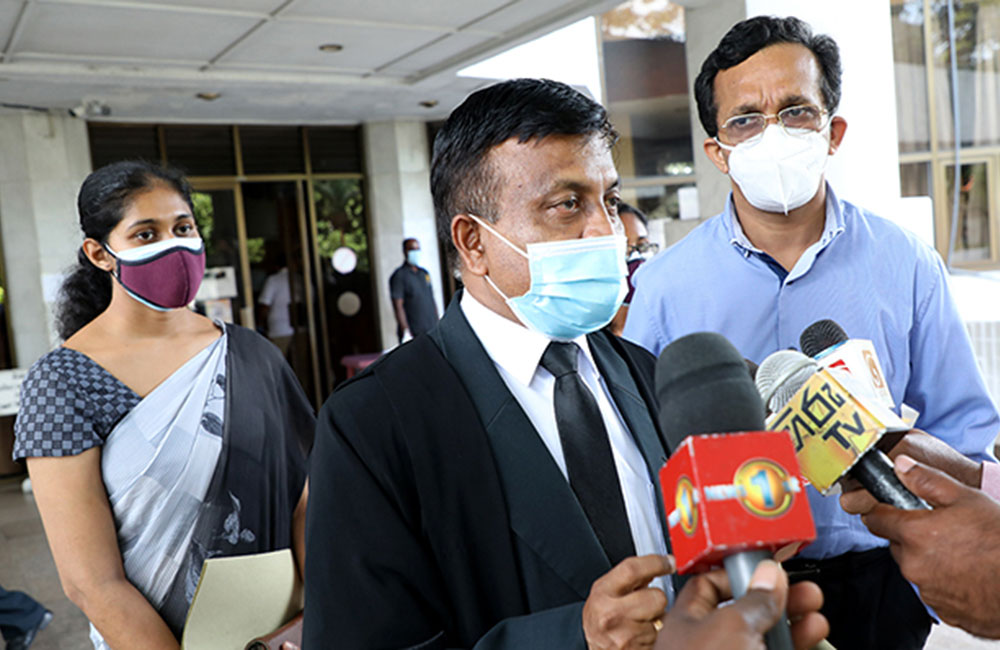
President & the Finance Minister sacrificing our resources for their country – Handunnetti
Sunil Handunneththi, Member of the Political Bureau of the JVP, says that the President and the Minister of Finance are sacrificing the country’s resources for the interests of the United States as they are citizens of that country.
He said this speaking to the media after the JVP filed a petition in the Supreme Court today (26th) against the agreement to transfer the shares and gas supply of the Kerawalapitiya LNG power plant to an American company.
Mr Handunnetti and Mr Wasantha Samarasinghe, another Member of the Central Committee of the JVP, are appearing as petitioners in the petition.
They are requesting the court to issue a writ order to cancel the agreement signed to transfer 40% of the shares of the Kerawalapitiya power plant and the monopoly supply of gas to the Sri Lankan company New Fortress Energy as illegal.
Speaking to the media, Mr Handunnetti said, “No one knows about this agreement today. The Parliament has not seen it. The cabinet does not know, and even the judiciary has not seen it.
The Minister in charge of the subject has also opposed.
Therefore, the people of the country have a right to know the truth about this agreement. We request the Hon. Court to annul the agreement which was signed without the knowledge of Parliament, the Cabinet of Ministers and the judiciary.
If the President is an American citizen and the Minister of Finance is an American citizen, they work for their country. We do not have the right to let them destroy the resources of our country that belong to the future generations of our country.” Attorney-at-Law Sunil Watagala, a member of the JVP Central Committee, was also present at the occasion.
Page 336 of 660